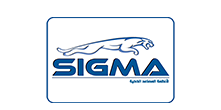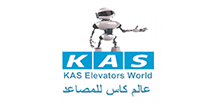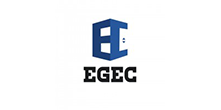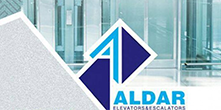اسنسير
المعروف أيضًا بالمصعد في بعض البلدان، هو وسيلة نقل عمودية تستخدم في المباني لرفع وهبوط الأشخاص والبضائع بين مستويات مختلفة. يعد جزءًا أساسيًا من حياتنا اليومية، حيث يوفر راحة وسهولة في التنقل داخل المباني الشاهقة والمنازل ذات عدة طوابق. يتكون المصعد عادة من سيارة تحمل الأفراد أو البضائع، وميكانيزم يتحكم في حركتها بواسطة نظام كهربائي أو هيدروليكي. يعمل الأسانسير على زيادة الكفاءة وتوفير الوقت في مقارنة بسلالم السلالم الداخلية، وهو أساسي في تسهيل الوصول إلى مستويات مختلفة في المباني الحديثة. (مقاسات المصاعد المنزلية )
كيفية عمل اسنسير
عمل اسنسير (المصعد) يعتمد على نظام معقد ومتقن يسمح برفع وخفض
السيارة داخل العمود الرئيسي للمصعد بسلاسة وبأمان. اليكم شرحاً عاماً عن كيفية
عمل الأسنسير:
- السيارة والعمود: تتألف الأسنسير عادة من السيارة التي تحمل الركاب أو البضائع، والعمود الرئيسي الذي يمتد عبر المبنى بين المستويات المختلفة. (اسعار ماكينات المصاعد الايصالية )
- محرك اسنسير: يوجد محرك كهربائي في القاعدة
السفلية للعمود، وهذا المحرك يكون مسؤولاً عن توليد الحركة الرأسية للسيارة.
- الأنظمة الكهربائية والتحكم: تحتوي الاسناسير على أنظمة تحكم معقدة تتيح للراكب تحديد الوجهة المطلوبة وتنظيم السرعة
وإيقاف الأسنسير في المستوى المناسب.
- الكابلات أو الحبال: تستخدم الأسانسيرات
التقليدية كابلات أو حبال لربط السيارة بمحرك الأسنسير وتوجيهها على العمود.
في الأسانسيرات الحديثة، قد يتم استخدام سلاسل أو حبال من الفولاذ المقاوم
للصدأ لضمان المتانة.
- الأبواب والحساسات: تحتوي الأسانسيرات على أبواب تفتح وتغلق تلقائيًا عند كل مستوى. حساسات مثبتة على الأبواب تكتشف وجود العوائق أمام الأبواب وتمنع إغلاقها إذا كان هناك أمر غير طبيعي. (اسعار المصاعد الصغيرة في مصر )
عندما يتم تحديد وجهة المستخدم والضغط على الزر المناسب، يبدأ المحرك في تشغيل الكابلات أو الحبال بالاتجاه المناسب. يتم ضبط السرعة وإيقاف أسانسير بشكل دقيق باستخدام أنظمة التحكم. عند وصول الأسنسير إلى المستوى المطلوب، يتم فتح الأبواب تلقائيًا للسماح للركاب بالخروج. وبهذا، يتم تحقيق نقل آمن وفعال بين المستويات المختلفة داخل المبنى. (ليفت )
أمان اسنسير
أمان الاسانسير يعد أمرًا بالغ الأهمية لضمان سلامة الركاب وتجربة
استخدام آمنة. تم تطوير العديد من الأنظمة والميزات لضمان أمان الأسنسير، وهذه بعض
النقاط الرئيسية المتعلقة بأمان الأسنسير:
- أنظمة الفحص والصيانة الدورية: تُجرى فحوصات
وصيانة دورية للأسانسيرات بواسطة فنيي صيانة مؤهلين لضمان أن جميع الأجزاء
تعمل بشكل صحيح. هذا يشمل فحص الكابلات والأبواب وأنظمة الكهرباء والميكانيكا.
- نظام الكبسولة الأمنية: يوجد عادة نظام كبسولة أمانية في حالة سقوط المصعد. يتم تنشيط هذا النظام عندما يتجاوز السقوط سرعة معينة، ويتم توجيه السيارة إلى المستوى الأقرب وتوفير تجربة هبوط آمنة للركاب.(سعر متر واير الاسانسير في مصر )
- أنظمة التحكم في السرعة: تُستخدم أنظمة
التحكم في السرعة للحفاظ على سرعة اسانسير داخل الحدود الآمنة. إذا زادت
السرعة عن المستوى الآمن، يتم توجيه السيارة إلى المستوى الأقرب بسرعة
وفعالية.
- حساسات الأبواب: تكون الأبواب مجهزة بحساسات
تكتشف وجود أي عوائق في مسار الإغلاق. إذا تم اكتشاف شيء غير طبيعي، تمنع
الأبواب من الإغلاق وتعيد فتحها تلقائيًا لمنع أي ضرر للركاب.
- إشارات التحذير والإجراءات الطارئة: تحتوي
الأسانسيرات عادة على أزرار طوارئ ومصابيح تنبيه للركاب للتفاعل في حالة
الطوارئ، والتي يمكن استخدامها للتواصل مع المشغل أو للتعامل مع حالات
الطوارئ.
إجمالًا، تُعتبر الأسانسيرات من وسائل النقل الآمنة والموثوقة في المباني الحديثة، وتتبع الصناعة معايير صارمة للأمان والجودة للحفاظ على سلامة الركاب. (اسانسير خارجي )
سقوط المصعد
سقوط مصعد هو حادث نادر ونادرًا ما يحدث بسبب العديد من الإجراءات والأنظمة الأمان الموجودة في تصميم الأسانسيرات الحديثة. على الرغم من ذلك، يجب أن يتم التعامل مع هذا الأمر بحذر، حيث يمكن أن يكون له تأثير خطير على السلامة.(سعر متر الواير للمصاعد )
إذا حدث سقوط المصعد، فإن نظام الأمان الرئيسي يتدخل لمنع السقوط الحر
والحفاظ على سلامة الركاب. هذا النظام يتضمن عادة ما يعرف بـ "كابل
الطوارئ" وأجهزة توجيه مصممة للحد من سرعة السقوط وإيقاف السيارة بسرعة
وسلامة.
تعتمد سلامة المصعد بشكل كبير على الصيانة الدورية والفحوصات التقنية المنتظمة. إذا تمت مراعاة هذه الجوانب بعناية، يمكن تقليل مخاطر سقوط المصعد إلى الحد الأدنى.(سعر طرمبة باب المصعد )
على الرغم من أن سقوط المصعد يعتبر حادثًا نادرًا، إلا أنه يجب على
مالكي المباني ومشغلي المصاعد الامتثال لجميع اللوائح والمعايير الأمانية لضمان
سلامة الركاب والحد من مخاطر حدوث مثل هذه الحوادث.
المصعد الهوائي
المصعد الهوائي هو تقنية نقل حديثة تختلف عن المصاعد التقليدية التي
تعتمد على الكابلات والأنظمة الهيدروليكية. يعتمد المصعد الهوائي على مبدأ الضغط
الجوي لرفع وهبوط السيارة داخل العمود الرئيسي.
هذا النوع من المصاعد يتميز بعدة مزايا، منها سرعة رفع أعلى مما يمكن أن توفره المصاعد التقليدية، وهو يعمل عن طريق توليد فراغ أو ضغط هوائي داخل العمود لرفع وخفض السيارة. يتم ضبط الضغط بشكل دقيق لضمان تحقيق الحركة المطلوبة بسلاسة وبأمان. (سعر مواتير المصاعد الايطالية في مصر )
بفضل تصميمه المبتكر، يمكن تثبيت المصعد الهوائي بسهولة في المباني
الحديثة، وهو يعد خيارًا جيدًا للمباني التي تبحث عن توفير مساحة إضافية وللتصاميم
المعمارية الجريئة. بالإضافة إلى ذلك، فإن هذا النوع من المصاعد يُعتبر أكثر كفاءة
من حيث استهلاك الطاقة ويتضمن نظامًا متقدمًا للسلامة لحماية الركاب.
يمكن أن يكون المصعد الهوائي خيارًا مثيرًا ومبتكرًا لأصحاب المباني
الحديثة الذين يتطلعون إلى تحسين تجربة المستخدمين وتوفير حلاً مبتكرًا للنقل
الرأسي.
سعر السلم الكهربائي في مصر
يعتمد سعر السلم الكهربائي في مصر على العديد من العوامل، بما في ذلك المواصفات والعلامة التجارية والجودة والميزات. يتراوح سعر السلم الكهربائي في مصر بشكل عام بين 10,000 جنيه مصري إلى 30,000 جنيه مصري أو أكثر، وهذا يعتمد على النموذج والحجم والوظائف الإضافية. (اسعار مواتير المصاعد )
من المهم مراعاة أن هناك تفاوتات في الأسعار بين مختلف العلامات
التجارية والبائعين. كما يمكن أن تكون هناك تكاليف إضافية للتركيب والصيانة
الدورية. يُفضل دائمًا البحث والمقارنة بين العديد من الخيارات والتحدث إلى
محترفين في مجال السلالم الكهربائية لضمان الحصول على منتج عالي الجودة يلبي
احتياجاتك وميزانيتك.
حساس باب المصعد
حساس باب المصعد هو جزء حاسم في نظام الأمان والتشغيل للمصاعدالحديثة. يتم تثبيت هذا الحساس عادة على أبواب المصعد، وظيفته الرئيسية هي الكشف
عن وجود أشياء أو أشخاص على طول منطقة الباب. عندما يتم اكتشاف شيء في طريق
الأبواب، يتم تشغيل نظام حماية يتوقف عمل الأبواب ويمنعها من الإغلاق، مما يحافظ
على سلامة الركاب ويمنع الأذى.
هذا الحساس عادة ما يستخدم تقنيات متقدمة مثل الأشعة تحت الحمراء أو الأشعة فوق البنفسجية للكشف عن أي شيء يعبر منطقة الباب. عند اكتشاف عائق محتمل، يتم توقيف عمل الأبواب فورًا ويتم إطلاق إشارة صوتية أو بصرية لتنبيه الركاب بضرورة الانتظار حتى تتم إزالة العائق. (مصاعد مستعملة للبيع في مصر )
حساس باب المصعد يعتبر أحد العناصر الأساسية للسلامة في نظام المصعد،
حيث يساهم في تقليل حوادث الإصابة والحوادث الشديدة ويضمن استخدام المصعد بشكل
آمن. تتطور تكنولوجيا هذه الأجهزة باستمرار لزيادة الأمان والكفاءة في مصاعدالمباني الحديثة.



















